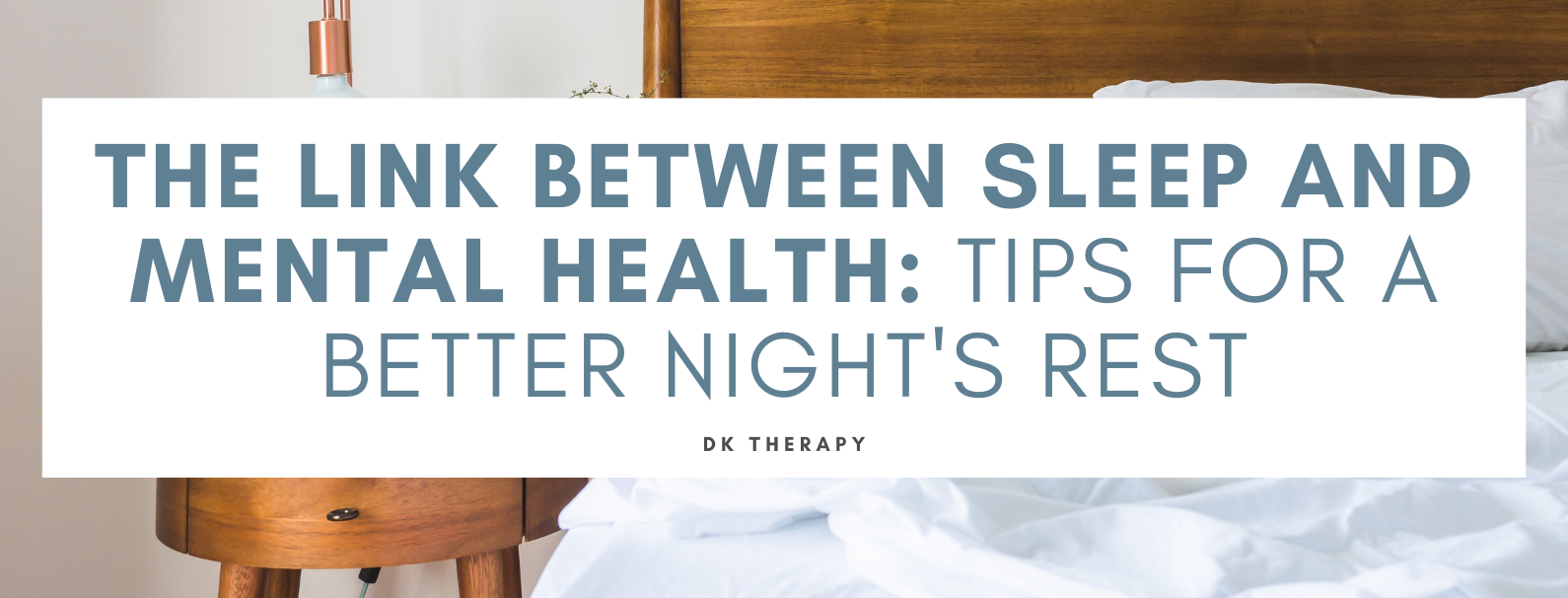
Getting a good night’s sleep is incredibly important when it comes to maintaining our mental health. When we fail to get enough rest, it can interfere with our moods, making us more irritable and prone to mood swings. Lack of sleep can also increase our chances of developing mood disorders like depression or anxiety. In addition, lack of rest inhibits our cognitive abilities, making it harder to concentrate and solve problems throughout the day.
 These reactions may be due to the fact that rest is tied to the human body’s stress response system. When we’re sleep-deprived, our stress responses kick into overdrive which makes it more difficult to handle life’s everyday stressors. Sleep and mental health go hand in hand in reverse as well. When we’re dealing with mental health issues like stress, it can make it harder to get a decent night’s rest. As such, the link between mental health and sleep works as a cycle.
These reactions may be due to the fact that rest is tied to the human body’s stress response system. When we’re sleep-deprived, our stress responses kick into overdrive which makes it more difficult to handle life’s everyday stressors. Sleep and mental health go hand in hand in reverse as well. When we’re dealing with mental health issues like stress, it can make it harder to get a decent night’s rest. As such, the link between mental health and sleep works as a cycle.
Adequate rest is essential when it comes to preserving our mental well-being. It’s not only about the number of hours you sleep, but the quality of the sleep you get as well. If you’re experiencing difficulty sleeping, it’s worth paying attention to. After all, sleep is a key component of fortifying your ability to handle life’s ups and downs.
Let’s take a look at several tips you can follow in order to get better sleep.
Remain Consistent
Try to go to bed and wake up at around the same time every day (even on the weekends). Setting a routine for yourself can help your body subconsciously get ready for rest when you decide that it’s time.
Make Your Bedroom Comfortable
When you lay down for the night, try to do so in a clean, cool, and comfortable environment. Avoid unnecessary exposure to both light and sound in your bedroom, and take part in calming activities before you go to bed (relaxation techniques, for example).
To make yourself as comfortable as possible in your sleep space, consider using room-darkening shades, sound-blocking earplugs, or temperature control devices that’ll optimize your sleep quality.
Exercise During the Day
While you should avoid intense exercise before bedtime, it’s a good idea to get at least 20 minutes worth of exercise during the day. By getting adequate exercise, you can help improve your body’s circadian rhythm which may, in turn, help you get better sleep.
Limit Your Caffeine Intake
While caffeine does have its benefits, promoting better rest is not one of them. As a stimulant, caffeine can affect the nervous system, which may make it more challenging to relax naturally. This is especially true when consuming caffeine later in the day, say, within six hours of going to sleep.
Try to avoid drinking caffeinated beverages from about 3:00 PM on. This way, the caffeine you consume in the morning will have enough time to leave your system before you lie down for the night.
Develop Sleep Rituals
Find simple ways to get ready for bed each night, such as dimming your lights or listening to relaxing music. By creating a list of simple tasks you do before bed, you can help get yourself ready to go to sleep each night.
The relationship between sleep and mental health underscores the importance of prioritizing a good night’s rest. Insufficient rest not only affects our mood and cognitive abilities but also amplifies stress responses.
Consistent sleep schedules, a comfortable sleep environment, daytime exercise, mindful caffeine intake, and the development of sleep rituals are practical strategies to enhance sleep quality. By acknowledging and implementing these tips, you can take proactive steps toward nurturing both your rest quality and mental well-being.
If you’re struggling and you believe that therapy would be beneficial, please feel free to reach out to DK Therapy to schedule an appointment with one of our experienced counselors.




